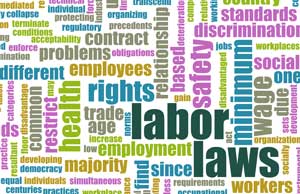 File Chapter 7 Chapter in Atlanta with ZERO MONEY DOWN. Or, why not enhance and work reporting, exposing and designing well being operations and facilities-educating and enabling and making these to be easily accessible to the armies of the poor Africans? My point: African individuals want to start to speak from being active in our milieu than trying to precise themselves immaculately and colloquially in medium equivalent to these, thus exposing their weaknesses and lack of knowledge as to what they actually do not know to one and all.
File Chapter 7 Chapter in Atlanta with ZERO MONEY DOWN. Or, why not enhance and work reporting, exposing and designing well being operations and facilities-educating and enabling and making these to be easily accessible to the armies of the poor Africans? My point: African individuals want to start to speak from being active in our milieu than trying to precise themselves immaculately and colloquially in medium equivalent to these, thus exposing their weaknesses and lack of knowledge as to what they actually do not know to one and all.
The police and plenty of authorities sectors are affected by ‘tribalism’ in hiring and functioning of these institutions. There’s a lot corruption, that many individuals are left bamboozled, gawking in horror as our bothers and sisters give themselves to selling out their people, and never caring a rat’s ass about their actions and their outcomes. We’ve a very callous elite which …
 If you are in the state of affairs of going by a divorce or perhaps your partner has already filed for a divorce, chances are you’ll want to take into account getting a divorce legal professional. I think that the rationale behind the divorce dictates the kind of habits that one can have in the course of the break-up or separation of belongings. Many have been know to just grow out of love and in agreement with each other that it is the proper factor to do and accept it for what it’s. Nonetheless, when there’s a specific purpose for the divorce corresponding to infidelity, many negative feelings arise and thus take over both events. One celebration, as the one that is harm, could change into vindictive in many ways as a result of quantity of pain they may really feel and the opposite party may just reply to the …
If you are in the state of affairs of going by a divorce or perhaps your partner has already filed for a divorce, chances are you’ll want to take into account getting a divorce legal professional. I think that the rationale behind the divorce dictates the kind of habits that one can have in the course of the break-up or separation of belongings. Many have been know to just grow out of love and in agreement with each other that it is the proper factor to do and accept it for what it’s. Nonetheless, when there’s a specific purpose for the divorce corresponding to infidelity, many negative feelings arise and thus take over both events. One celebration, as the one that is harm, could change into vindictive in many ways as a result of quantity of pain they may really feel and the opposite party may just reply to the … Legal professionals specialise in a wide number of fields from personal injury and legal law to immigration, enterprise and finances. In truth, life on the row” means the tip of autonomy. Indeed, in some U.S. states, these sentenced to demise are forced to take a prescribed amount of sedation every day, so as to create a serenity meant to ease the work of those employed to protect them. This system has been analogized to the often alleged overuse of medicine in psychological health amenities, more geared to the consolation of staff than reduction of the sufferers’ anxieties.
Legal professionals specialise in a wide number of fields from personal injury and legal law to immigration, enterprise and finances. In truth, life on the row” means the tip of autonomy. Indeed, in some U.S. states, these sentenced to demise are forced to take a prescribed amount of sedation every day, so as to create a serenity meant to ease the work of those employed to protect them. This system has been analogized to the often alleged overuse of medicine in psychological health amenities, more geared to the consolation of staff than reduction of the sufferers’ anxieties. While there is no strategy to predict precisely low lengthy a civil lawsuit will take to go from beginning to finish, there are a variety of steps that one can ordinarily expect to undergo. Tort is the realm of legislation which deals with civil wrongs, as opposed to legal acts A civil mistaken or “tort” is an act that results in harm or hurt, for which courts impose legal responsibility on an individual. As the sale of substandard breast milk might lead to injury or hurt, it may fall beneath an area of tort regulation referred to as product legal responsibility or the regulation on faulty products The courts do not impose a “punishment” for committing a tort, nonetheless, they usually order defendants in tort cases to pay financial compensation to the wronged particular person (generally known as the plaintiff). The thought of monetary compensation is to place the plaintiff …
While there is no strategy to predict precisely low lengthy a civil lawsuit will take to go from beginning to finish, there are a variety of steps that one can ordinarily expect to undergo. Tort is the realm of legislation which deals with civil wrongs, as opposed to legal acts A civil mistaken or “tort” is an act that results in harm or hurt, for which courts impose legal responsibility on an individual. As the sale of substandard breast milk might lead to injury or hurt, it may fall beneath an area of tort regulation referred to as product legal responsibility or the regulation on faulty products The courts do not impose a “punishment” for committing a tort, nonetheless, they usually order defendants in tort cases to pay financial compensation to the wronged particular person (generally known as the plaintiff). The thought of monetary compensation is to place the plaintiff … The current case of McHugh v NCH Scotland 2006, concerned an allegation of incapacity discrimination. Employment law is the gathering of legal guidelines and rules that regulate relationships between employers and workers. Employment laws say when an employer can hire employees and when the workers can work. The legal guidelines cover what an employer must pay the employee for his or her work. They create minimum necessities for working circumstances for employees.
The current case of McHugh v NCH Scotland 2006, concerned an allegation of incapacity discrimination. Employment law is the gathering of legal guidelines and rules that regulate relationships between employers and workers. Employment laws say when an employer can hire employees and when the workers can work. The legal guidelines cover what an employer must pay the employee for his or her work. They create minimum necessities for working circumstances for employees.